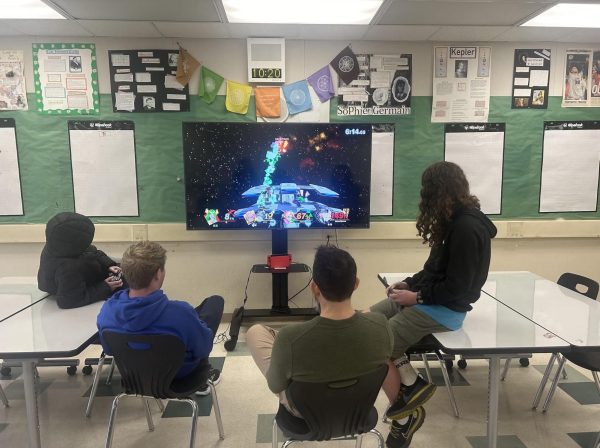Asian Entertainment is Popularized in the West as Films and Shows Capture Large Audience
In recent years, the popularization of Asian entertainment in the West has become more and more apparent. With the recent representation that countless projects including Netflix’s Korean drama, Squid Game, Oscar-winning film Parasite, Anime shows and movies, Marvel’s Shang-Chi, and K-pop groups such as BTS and BLACKPINK have in Western media, recognition of East Asian communities continues to inflate.
Senior Sky Staes offers his opinions on Asian media’s popularization in the west; He notes the racial connections that are associated with Asian media’s marketability in the US, stating that “the boom emphasizes a step forward from historically racist conceptions of Asian culture.” He notes the presence of whitewashing in these conceptions, which he defines as, “the representation of Asian culture based on Western stereotypes.”
He believes that there “should be an enunciated boundary in how Asian media is defined” because of how often and commonly it is perceived in the west. Staes asserts the dangers which are are initiated through the categorization of all Asian media as each genre “adheres to its origins and should not be stereotyped into a simple generalization.”
Staes concludes that Asian media’s influence offers “an opportunity for consumers to discover what’s beyond the forms of media popularized in the west.” He adds that “it serves as an opportunity for discovery and insight into foreign cultures that one may not be accustomed to.” However, it is important for consumers to be able to “distinguish the problems highlighted by Asian media such as poverty and classicism.” Though films such as Squid Game and Parasite are Korean, the issues they highlight “should not be held exclusive to South Korea alone. These are issues that exist worldwide and shouldn’t be held exclusively to one nation”
Senior Melissa Chen offers the inspiration she has received from indulging in K-pop since she was roughly six years old. “Being an Asian female, I felt that Asian shows and music weren’t incorporated as much [into media] compared to any other genre of music.”
She credits the commencement of Korean media’s popularization in the west to the introduction of K-pop idols like PSY and BTS. “It wasn’t until later that Asian dramas or TV shows started being a hit.”
Through her discovery of Asian media, Chen has been able to “learn dance moves, read webtoons, watch dramas, and best of all, [write, speak, and read] bits of language on [her] own.” She notes that her gravitation towards the genre was due to the “idols, fashion, addictive melodies, and the diverse language it utilizes to reel you in.”
Chen professes that “Asian media has been expanding globally and [she] can’t believe it. But [she] hopes it will get even better recognition [in the future].”

Hi, my name is Lauren Hengehold, checking in for my second year on the staff of the Dragon's Tale. I loved being a part of the feature staff last year...

Hey Dragons! My name is Bella Quilici and I love making short films, playing guitar and participating in youth activist groups. This is my first year with...







